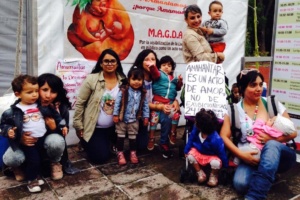Minnesota, United States. Last month six hundred workers at the Chipotle fast food chain were fired in Minnesota. Their crime? Working. In the last two years, thousands of others have been fired for the same offense – 2000 young women at Los Angeles sewing machines, 500 apple pickers in eastern Washington, hundreds of janitors in Minnesota and California, and many, many more. They’re all victims of the administration’s «softer» immigration enforcement strategy.
Its logic is brutal: Make it impossible for 12 million undocumented people in the U.S. to earn a living – to buy food, pay rent, or send money home to their children. Then they’ll deport themselves. When their families hear they can’t get jobs in the U.S., they won’t join those already here.
This inhuman logic convinced Congress to pass the Immigration Reform and Control Act in 1986. For 25 years employers have had to verify workers’ immigration status, and cannot legally employ people without papers. The real impact, though, is on workers. It’s become a crime to hold a job.
The justification has always been the same. Undocumented immigrants will go home if they can’t work. But no one has. Over those 25 years NAFTA and CAFTA, and pro-corporate market reforms in Mexico and other developing countries, profoundly deepened the poverty driving people from their homes. More people came than ever before.
Among them were those six hundred mostly-Mexican workers, who got minimum-wage jobs serving Mexican food at Chipotle. Many of them worked years for the company. Then the Department of Homeland Security audited Chipotle’s personnel records, found incorrect Social Security numbers, and in December sent the company a list of workers it had to fire.
Alejandro Juárez, who worked at the Calhoun Lake restaurant in Minneapolis, says his manager told him not to bother coming back the next day. He’d spent five years cleaning and fixing the stoves, grills and refrigerators, for $9.42/hour. «The company used us,» he says, «and when it didn’t serve them anymore, they threw us away like trash.»



